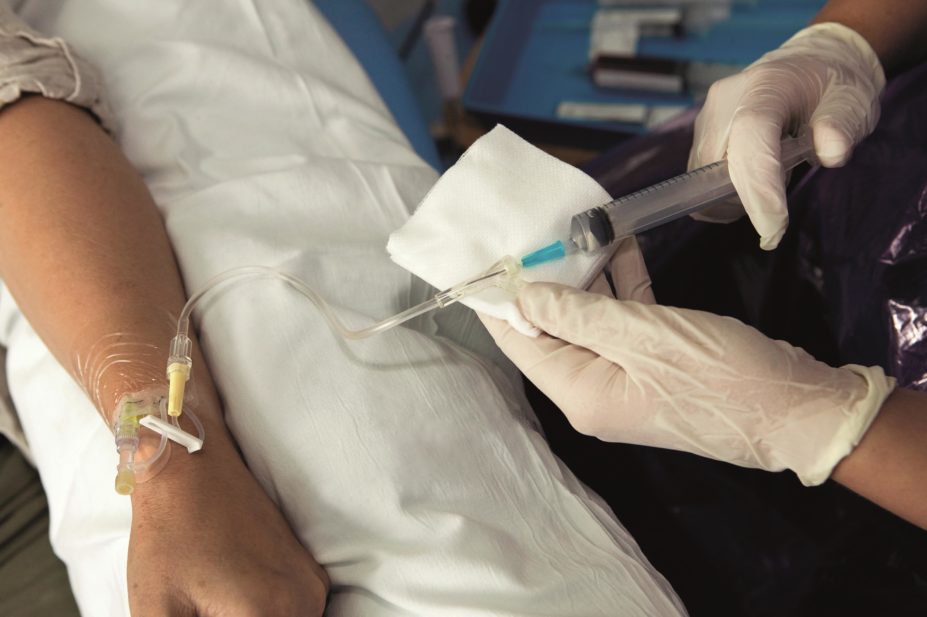
Alan Holden / Alamy Stock Photo
Bleomycin (BLM) is a potent anticancer agent used in combination chemotherapy against a number of malignancies. But its use is limited because around 20% of patients develop lung toxicity, which in its most severe form causes lung fibrosis.
So researchers in France tested a deglycosylated form of bleomycin (deglyco-BLM) to see if it reduced toxicity.
In mouse models of leukaemia, melanoma and Hodgkin’s lymphoma, there was no observed lung damage after administration of deglyco-BLM at the effective anti-tumour dose. Unlike BLM, deglyco-BLM did not induce oxidative stress or caspase-1 activation, nor did it trigger subsequent production of inflammatory and profibrotic cytokines in the lungs.
The researchers, reporting in Science Translational Medicine (online, 17 February 2016)[1]
, say clinical testing is needed to explore whether deglyco-BLM could be a less toxic alternative to BLM in humans.
References
[1] Burgy O, Wettstein G, Bellaye PS, et al. Deglycosylated bleomycin has the antitumor activity of bleomycin without pulmonary toxicity. Science Translational Medicine 2016; 326: 326ra20. doi: 10.1126/scitranslmed.aad7785.


